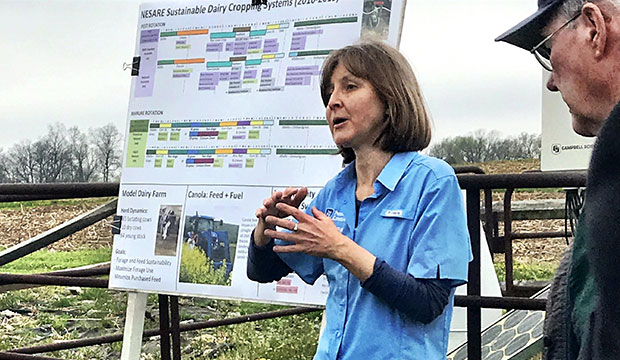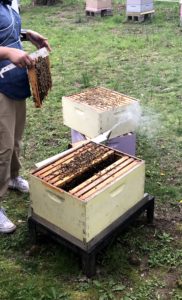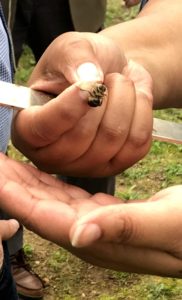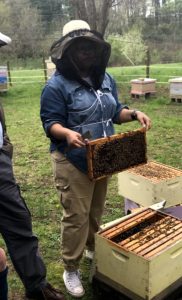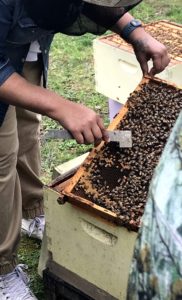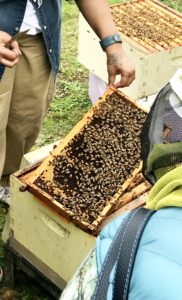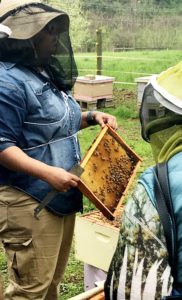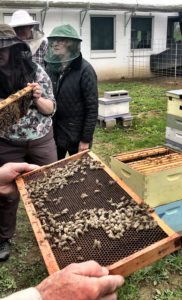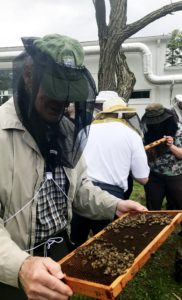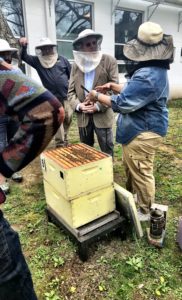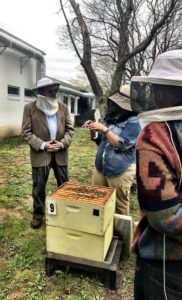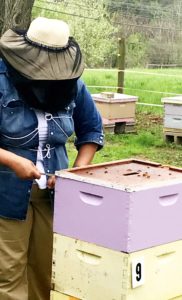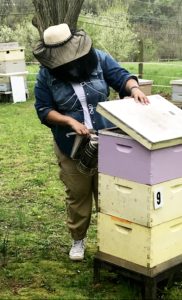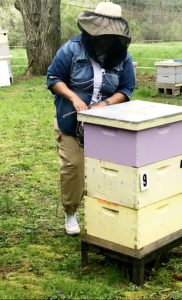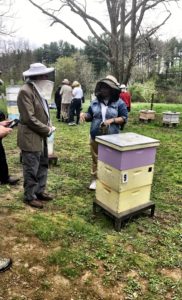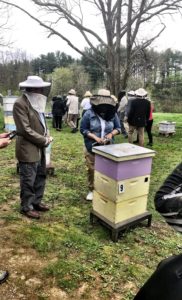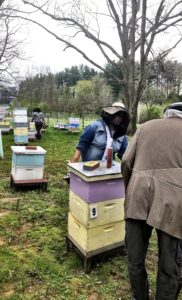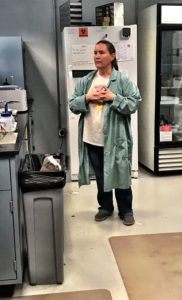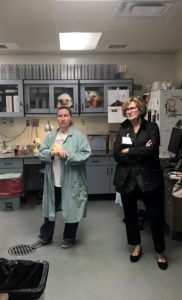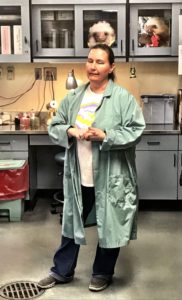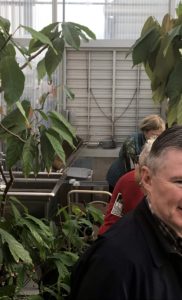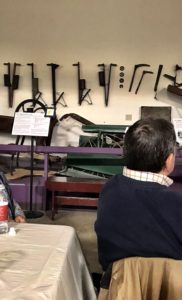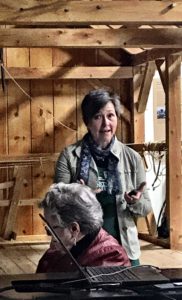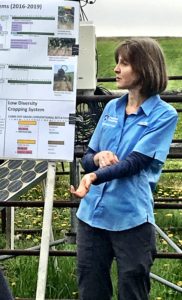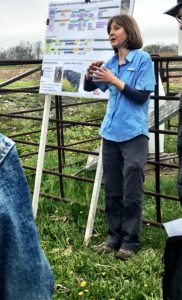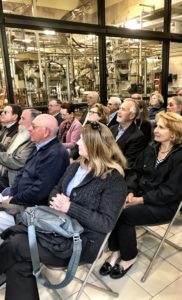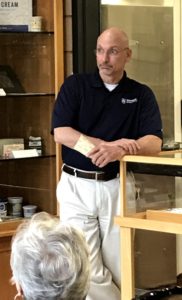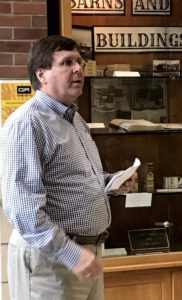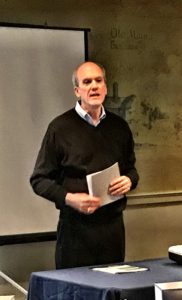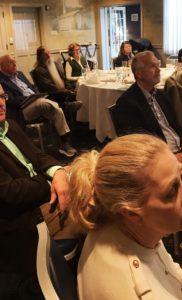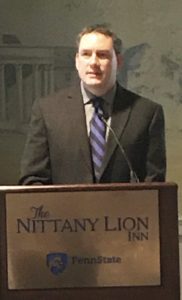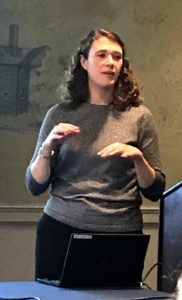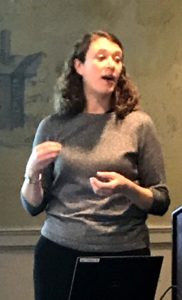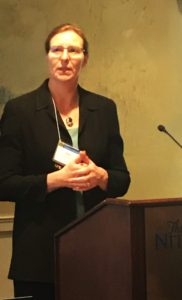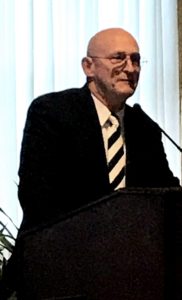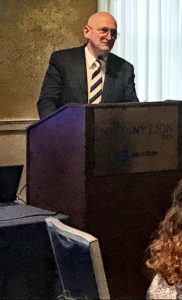The Society was looking forward to a tremendous field trip over a two-day period to Penn State University and Happy Valley – the 26 members who attended the field trip were not disappointed! After the trip several members hailed it as “The best field trip ever!” Dean Roush of Penn State was is the perfect host and Mary Seaton was an outstanding guide to the fast paced program. Society members got to see some of the “Top Flight” work and research going on at Penn State and had the opportunity to talk with key scientists about the details of their work. The varied research topics covered a broad spectrum of agricultural research ranging from the long-term work on cacao bean agriculture, all the way to a groundbreaking discovery in the control of bed bugs. This trip will go down in the annals of Society history as one of the top events ever. You can find out more about Penn State agricultural research here: Penn State Research
Recap of Field Trip: Duncan Allison
All 26 of us fortunate enough to attend the two day visit to the Penn State Campus at State College on May 1st and 2nd must have returned home really impressed by the wide range and high quality of the agricultural research being carried out on this vast and very impressive campus. We visited many departments and heard from management staff actively involved in the research. We were able to watch work in progress. No one could have left without being convinced that we were witnessing real fundamental, and often exciting and new, scientific research being developed to solve current problems confronting our farmers and the food industry.
Our tour was impressive, intense and enjoyable. Clearly this was the result of much interaction between our President Mark Myers, the Dean and his office and faculty members. It was made clear to us at several points during our visit that the individual colleges focused on their particular areas. However, these “stove pipes” were coordinated by multidisciplinary Institutes which brought together all the relevant disciplines that could influence the results. The advantages are obvious and reflect the current emphasis on providing solutions that are completely relevant to current and future needs on the farm.
We were greeted by the Dean at lunch with an overview of the university and its strong commitment to the largest industry in Pennsylvania. The campus is big enough so that a university bus was required to move us from department to department. Some quick notes follow on some of our visits.
Food processing is a major industry in the state and since dairy is PA’s largest Ag industry, the main emphasis is on dairy products in the Food Processing Department. Two very large rooms allow access to all the critical inputs required for carrying out main processing trials at the same time. Cocoa has its own department as Pennsylvania has the largest chocolate production industry in the country. The state has to ensure that cocoa production around the world is able to continue producing large quantities of high quality cocoa. Emphasis is on breeding varieties resistant to disease.
Using basic science and research to solve problems in production in processing and on the farm requires close collaboration with the relevant industries. Field trials were not neglected on this trip and the bus took us out to the huge experimental farm. There we visited long term trials aimed at producing more sustainable cropping regimes and crop rotations.
The campus also includes a state-run building devoted to the rapid diagnosis of animal diseases using the latest technology. For example, the regular testing for Salmonella infection of eggs has resulted in a much lower incidence of this serious disease. Many thousands of diagnostic tests on a wide of livestock are carried out for farmers across the state.
Our very last visit was to the Apiary Department as we were reminded of the vital role that bees play in the pollination of so many of our field and tree crops. We were able to handle the frames pulled from the beehives (suitably protected with a head and shoulder veil!) so we could see the drones busy with both pollen and honey scurrying between the cells. No one got stung! Research was being carried out to determine optimal management practices for these valuable animals.
All in all the PSPA field trip to Penn State University proved to be the highlight of the program year. It was a new type of program for the Society and reinforced one of our goals – to provide a program that features the best in ag science. The trip packed into two days what would have taken a half dozen or more regular meetings to cover. It was a great experience for all involved.

